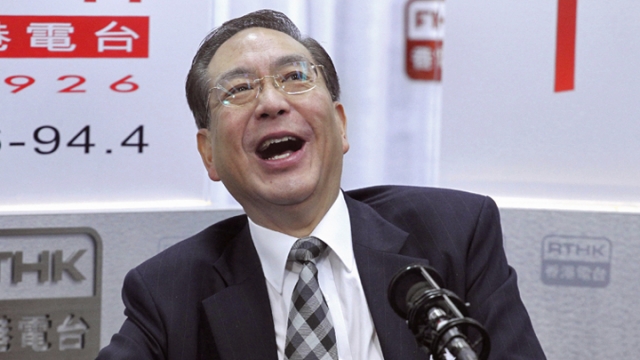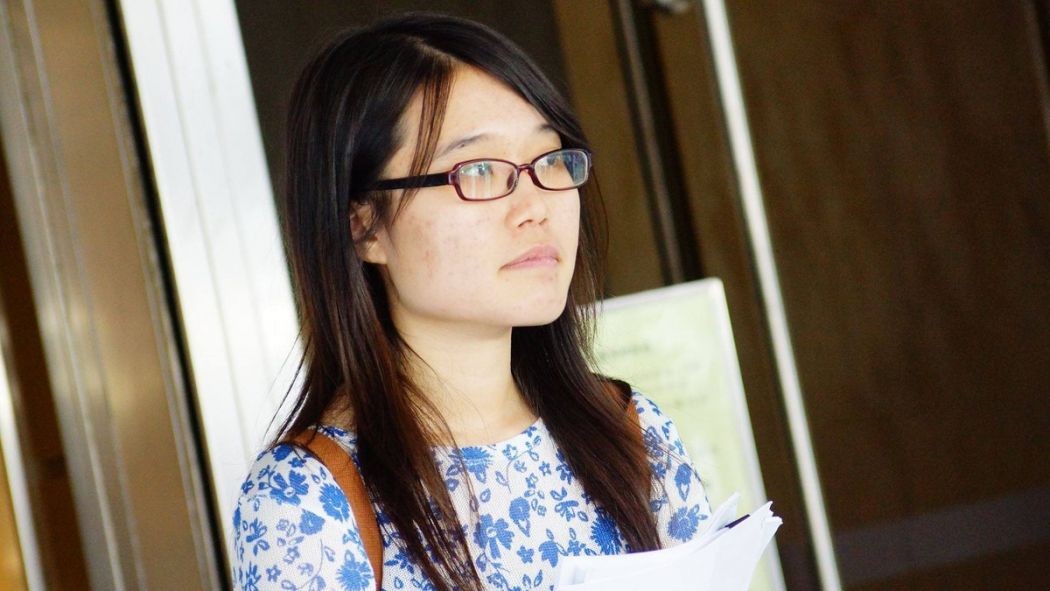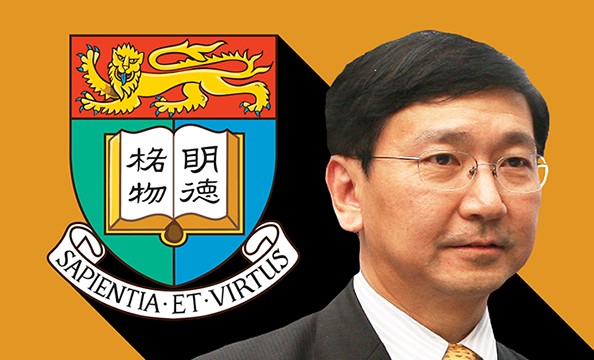Hold on here: Who’s on drugs—the aphrodisiac of power and privilege, that is?
Of course, the students whose behaviour turned violent at last week’s protest outside the first meeting of the governing council for the University of Hong Kong under its new chairman, Arthur Li Kwok-cheung, are to be condemned.
Moreover, Billy Fung Jing-en, who sits on the council by virtue of his position as president of the HKU Student Union, should resign his seat and join his fellow students in the street, where he clearly feels more at home. He cannot serve two masters and, through his breaches of confidentiality and apparent coordination with protesters while council meetings are in progress, has made his choice.

That said, what are we to make of Li’s delusional rant at a press conference called the day after more than 200 students besieged the venue at which the council meeting was being held and of HKU Vice Chancellor Peter Mathieson’s craven support of Li’s obvious distortions and hyperbole?
Yes, the demonstration got out of hand. Council members, including Li and Mathieson, were trapped inside the building for hours, and three people were taken from the scene by ambulance. That is certainly regrettable and can only do damage to the student-led campaign demanding change in the HKU governance structure so that unpopular and blatantly political appointments (such as Li’s) do not happen again.
But was this, to use Li’s words, a “riot” perpetrated by students who had been “poisoned” and “manipulated” by pan-democratic politicians and acted “like someone who has taken drugs”?
Was this—to use the words of Mathieson who was parroting the words of Li—“mob rule”?

As it turned out, police handled the angry crowd skilfully and eventually everyone went home—probably still angry but also safe. No cars were overturned, no fires lit, no stones thrown, no tear gas or pepper spray deployed, and no arrests made.
To most of us, that doesn’t sound like a riot. The fact that Li chose to characterise it as such and to tie this menacing exaggeration to the pan-democrats—specifically to leading members of the Civic Party, Audrey Eu Yuet-mee and Alan Leong Kah-kit—just goes to show how right HKU students, alumni and faculty were to oppose his appointment as council chair in the first place.
The fear always was that Li would become Chief Executive Leung Chun-ying’s blunt instrument to punish Leung’s opponents and curb academic freedom at Hong Kong’s oldest and most respected university.
Indeed, Li’s controversial appointment is what galvanised the student campaign to change the university’s governance structure so that the chief executive is no longer, by dint of his office, also the chancellor of the university with the power to choose the chair and other members of its governing board.
Tuesday night’s protest had been preceded by a week-long class boycott.
So it is not surprising that Li, notorious for his authoritarian style, used the press conference following his first council meeting to attack protesting students and the pan-dems. It’s his job as the new chair to whip HKU into a more compliant shape for the Leung administration and, by logical extension, the central government in Beijing.
What was shocking, however, was the rhetoric Li employed. You might expect this incendiary brand of misrepresentation and outright fabrication from an editorial in a Communist Party mouthpiece such as the Global Times, but not from a Professor of Medicine who has been called to serve Hong Kong’s most venerable tertiary institution.
Calling Fung “a liar” for breaking his vow of confidentiality to the council may have been harsh and inflammatory, but at least the accusation had some basis in fact— although Fung now maintains he never made such a vow.
Li’s claim, however, that those who took part in the protest were dazed pawns of the Civic Party smacked of cynical demagoguery unworthy of a person of his academic background and standing.

His evidence for this ludicrous charge: Civic Party Chairwoman Eu was spotted at the protest that night (although she left for a party meeting well before things went bad), and one of the student organisers of the demonstration, Yvonne Leung Lai-kwok, served as an intern four years ago in the office of Leong, the party’s current leader.
Leung has since apparently had zero contact with Leong and is not a member of his party.
One has to wonder about the judgment—and, frankly, the mental acuity—of someone who would make wild allegations of this sort at a time when the city is roiling with distrust and resentment for its putative leaders and their underlings.
Li and the chief executive who so imprudently appointed him have demonstrated that they learned nothing from the public outrage generated last September by the council’s rejection of Johannes Chan Man-mun, dean of HKU’s faculty of law from 2002 to 2014 and a well-known pro-democracy figure, for the position of pro-vice chancellor at the university.

Chan, the sole candidate for the position unanimously recommended to the council by a search committee headed by Mathieson, was rejected by a 12-8 vote, with Li leading the charge against him.
For a job well done, Leung rewarded Li with the council chair despite howls of protest from HKU students, faculty and alumni as well as from the general public.
But public opinion obviously doesn’t matter a whit to either Leung or Li, the two most unpopular men in Hong Kong whose faces do not appear on the police’s Most Wanted list. They seek their approval elsewhere, and the power they derive from that approval is the only mind-altering drug at play here.
With Leung and Li calling the shots, it’s no wonder students don’t trust the council’s pledge to review the HKU framework for governance in two months’ time. It sounds like a bureaucratic fob-off, and most likely it is.
The students are angry because their demands are treated with arrogance and contempt, which only makes them more angry and determined to press on.
Hong Kong’s older generation of leaders needs to make peace with this younger generation or they are never going to have any peace of their own.
